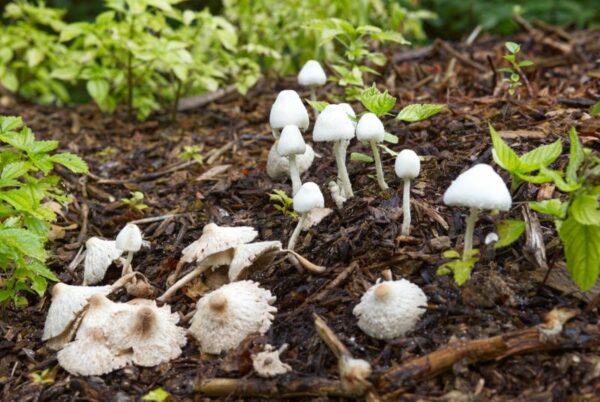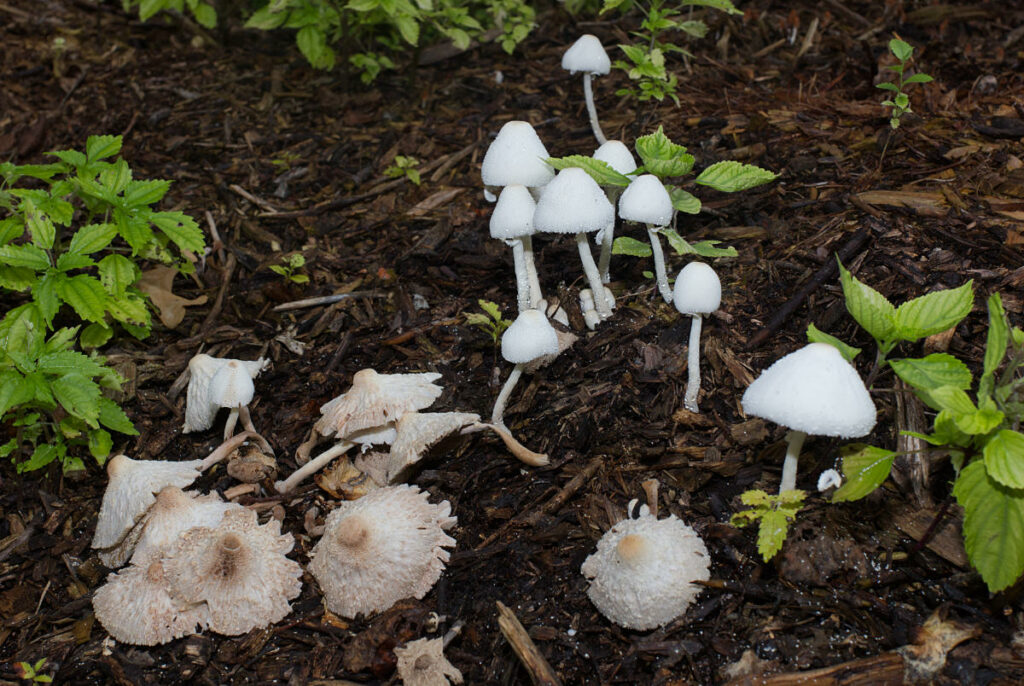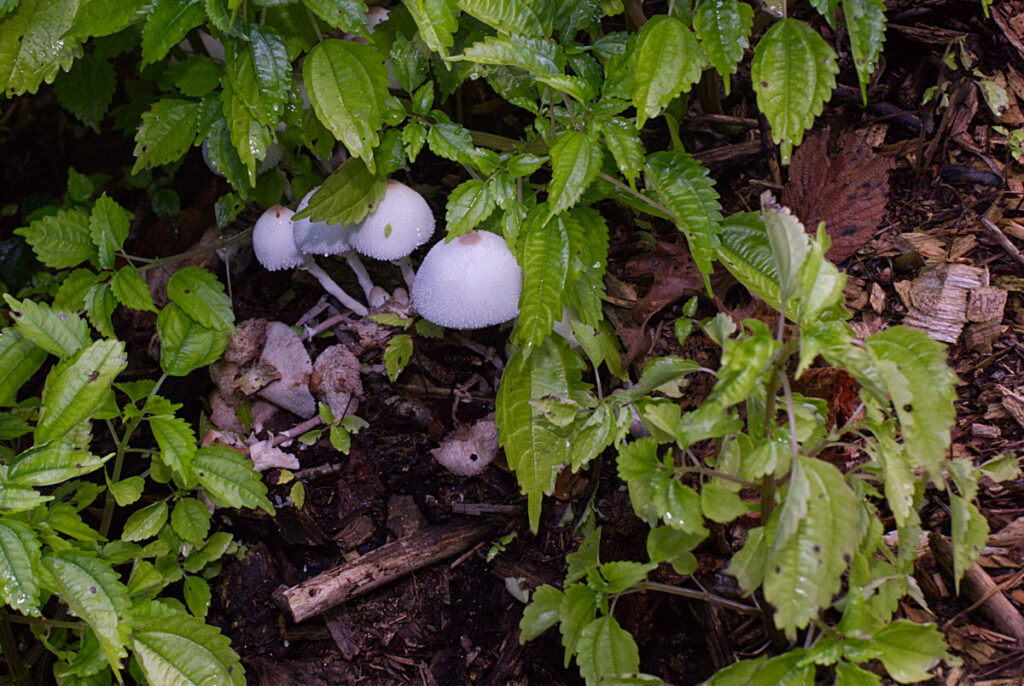Are you finding mysterious mushrooms popping up in your garden? Don’t worry, you haven’t stumbled upon a fairy realm! In this article, we’ll explore the fascinating world of mushrooms in your garden and uncover their secrets. From the enchanting varieties to the role they play in the ecosystem, you’ll discover how mushrooms can add a touch of magic to your outdoor space.
What Does it Mean When You See Mushrooms In Your Garden?
When you spot mushrooms sprouting in your garden, it’s a sign that something intriguing is happening beneath the surface. These fungal wonders have a captivating presence and play a vital role in the ecosystem. The appearance of mushrooms signifies the presence of mycelium, a network of thread-like structures that permeate the soil, forming a symbiotic relationship with plant roots. This intricate underground system aids in nutrient cycling, enhancing soil health, and promoting plant growth.
Mushrooms, the visible fruiting bodies of fungi, emerge when conditions are favorable. They arise from the mycelium, breaking through the soil in an array of shapes, sizes, and colors. From delicate fairy tale-like toadstools to majestic and robust caps, mushrooms exhibit an astonishing diversity.
It’s important to note that not all mushrooms in your garden are beneficial. Some species can be toxic or parasitic, posing risks to plants and even animals. Therefore, it’s crucial to exercise caution and refrain from consuming any wild mushrooms unless you have expert identification skills.
However, many mushrooms are beneficial allies in your garden. They help decompose organic matter, breaking it down into essential nutrients that can be readily absorbed by plants. This decomposition process, known as saprophytic activity, aids in recycling dead plant material and enriching the soil.
Furthermore, certain types of mushrooms form mycorrhizal associations with plants. These mutually beneficial relationships involve the exchange of nutrients between the fungus and the plant’s roots. The fungus assists in absorbing water and nutrients from the soil, while the plant provides sugars and other organic compounds to the fungus. This mycorrhizal symbiosis enhances the plant’s resilience, nutrient uptake efficiency, and overall health.
While mushrooms in your garden may evoke a sense of curiosity and wonder, it’s crucial to recognize their role in the delicate balance of the ecosystem. They contribute to soil fertility, plant vitality, and the overall health of the garden. So, next time you spot these captivating fungal marvels, take a moment to appreciate the fascinating world that lies beneath the surface.
Why Do Mushrooms Appear in The Garden?
Mushrooms are quite amazing. The many species of fungi in the family of mushrooms have adapted to a wide range of environments. You will find them in many colors and habitats. Each one is adapted to a niche that they occupy.
What we call mushrooms are really the fruiting bodies of the mycelium, which spreads below the ground beneath our feet. The mycelium spreads through the soil, looking a bit like a spider web. Some mycelium from certain species has a symbiotic relationship with trees and plants. The mycelium attaches to the tree roots and provides the tree with nutrients. In return, the tree provides the mycelium with the sugars and carbohydrates it needs, through photosynthesis in the leaves. A good example of this is the relationship that the highly prized Morel mushroom has with certain trees.
Others, like the mushrooms pictured in the photo at the top of the article, spread throughout your mulch pile. These are growing on cedar mulch that we are using to mulch the garden. What the mycelium is actually doing is slowly breaking down the wood into rich, fertile soil. This mulch will be tilled into the garden soil over the winter.
The mulch that is tilled in will contain the mycelium, so when the temperature and humidity are right, there will be mushrooms that appear in your garden. Don’t give it a second thought, because seeing mushrooms in your garden is a good thing. It means you have healthy soil! Healthy soil is the holy grail of gardening. Without the proper soil nutrients, your plants will not look good, and won’t produce as well, if at all.
How Do Mushrooms Contribute to Healthy Soil?
Mushrooms play a crucial role in fostering healthy soil. Their presence signifies a thriving ecosystem beneath the surface, where intricate interactions occur. Let’s explore how mushrooms contribute to the vitality of soil and the well-being of your garden.
Many mushrooms are masters of decomposition. They excel at breaking down organic matter, such as fallen leaves, wood, and other plant debris. As they feed on this organic material, mushrooms release enzymes that break it down into simpler compounds. This decomposition process results in the release of essential nutrients, including nitrogen, phosphorus, and potassium, which are vital for plant growth.
Mushrooms act as powerful agents of nutrient cycling. They absorb nutrients from decaying organic matter and transform them into forms that are easily accessible to plants. When mushrooms release spores, these tiny reproductive structures disperse across the soil, carrying valuable nutrients with them. As a result, neighboring plants can benefit from the enriched soil, leading to healthier and more vibrant growth.
Mushrooms also help to improve soil structure. The mycelium, the intricate network of fungal threads, weaves through the soil, creating a web-like structure known as a mycelial mat. This mat helps bind soil particles together, enhancing its water-holding capacity and preventing erosion. The mycelium also acts as a highway, facilitating the movement of nutrients, water, and beneficial microorganisms throughout the soil.
Mushrooms’ contribution to healthy soil doesn’t end there. They establish symbiotic relationships with plants through mycorrhizal associations. In these partnerships, the fungus exchanges nutrients and water with the plant’s root system. The mycelium extends far beyond the reach of plant roots, accessing nutrients from a wider area and delivering them directly to the plant. This symbiosis enhances the plant’s nutrient uptake efficiency, strengthens its resilience against environmental stresses, and improves overall growth and vigor.
Mushrooms create a favorable environment for beneficial soil microorganisms. The mycelium secretes substances that attract beneficial bacteria, fungi, and other organisms. These soil inhabitants, in turn, enhance nutrient availability, suppress harmful pathogens, and contribute to a balanced and thriving soil ecosystem.
To encourage mushrooms and their positive impact on soil health, it’s important to create conditions conducive to their growth. Provide organic matter, such as compost or mulch, as a food source for mushrooms. Maintain proper moisture levels and ensure good drainage, as excessive moisture can discourage mushroom growth. Avoid excessive disturbance of the soil, as this can disrupt the delicate mycelial networks.
If you click on the image above and view it at full size, you can see many small white dots. This is the mycelium surfacing to put out the fruiting bodies we call mushrooms. We call this pinning. When you work this rotting wood into your soil, you are also incorporating the mycelium that is in the soil. By doing this, within a relatively short time, the mycelium will finish breaking down the small amount of wood within your soil. This will transform your soil into rich, dark soil just perfect for growing your flowers or vegetables.
So the next time you see mushrooms in your garden, you can be happy. It is telling you that you have healthy soil and your garden is ready to produce a bounty of vegetables for you and your family.
A word of caution is in order. Never eat the mushrooms growing on your compost pile. Some mushrooms are edible, many are not, and some are deadly if you eat even a small amount. Don’t take chances. If you aren’t able to identify mushrooms in the wild, it’s best to leave them and enjoy them. They will send out their spores and decompose, adding nutrients back into your soil.
Be sure and check out our list of articles to discover a wealth of information on mushrooms as well as wild edible and medicinal plants.
FAQs:
Q: Should you remove mushrooms from the garden?
A: It is generally not necessary to remove mushrooms from the garden unless they are of a toxic or harmful variety. Mushrooms play a vital role in the ecosystem by decomposing organic matter and contributing to healthy soil. However, if you have concerns about toxicity or aesthetic reasons, you can remove them, ensuring to wear gloves and properly dispose of them.
Q: What does it mean when mushrooms grow in your garden?
A: The presence of mushrooms in your garden indicates a healthy ecosystem. It means that the soil is rich in organic matter and contains beneficial microorganisms. Mushrooms typically emerge when conditions are favorable, such as when there is sufficient moisture and decaying organic material. Their appearance is a positive sign that your garden is fostering a diverse and thriving soil environment.
Q: Do mushrooms mean your yard is healthy?
A: Yes, the presence of mushrooms in your yard is often an indication of a healthy and vibrant ecosystem. Mushrooms thrive in environments where organic matter is decomposing and beneficial microorganisms are present. They contribute to nutrient cycling, improve soil structure, and establish symbiotic relationships with plants. However, it’s important to note that while mushrooms generally reflect a healthy yard, not all mushrooms are safe to consume.
Q: Are mushrooms in my raised beds bad?
A: Mushrooms in raised beds are not inherently bad. In fact, they can indicate that your raised beds have a healthy soil ecosystem. However, if you have concerns about competition for nutrients or if you’re growing edible crops and want to avoid any potential toxicity, you may choose to remove the mushrooms. Otherwise, mushrooms can coexist with your plants and contribute to the overall health of the raised beds.
Q: Can mushrooms contaminate the garden?
A: In general, mushrooms do not contaminate the garden. They are part of a natural decomposition process and contribute to the health of the soil. However, it’s essential to be cautious if you are uncertain about the species of mushrooms in your garden. Some mushrooms can be toxic or have adverse effects on plants. If you suspect toxic mushrooms or have concerns, it’s best to remove them to ensure the safety of your garden.
Q: Should I remove mushrooms from my mulch?
A: It is not necessary to remove mushrooms from mulch unless you have specific concerns. Mushrooms in mulch are a natural occurrence and part of the decomposition process. However, if you prefer a neater appearance or have concerns about the safety of certain mushroom species, you can gently remove them from the mulch. Ensure you wear gloves and dispose of them properly.
Q: Do mushrooms remove toxins from the soil?
A: Mushrooms have the remarkable ability to break down and neutralize certain toxins in the soil. They can absorb and metabolize various contaminants, including some pesticides and industrial pollutants. However, their effectiveness in removing toxins depends on the specific contaminants present and the types of mushrooms involved. While mushrooms can contribute to soil remediation, professional expertise may be required for specific situations.
Q: Are mushrooms good for garden soil?
A: Yes, mushrooms are beneficial for garden soil. They enhance soil health by decomposing organic matter, releasing nutrients, improving soil structure, and establishing mycorrhizal associations with plants. Mushrooms contribute to the overall fertility and balance of the soil ecosystem, promoting healthy plant growth and aiding in nutrient cycling.


